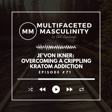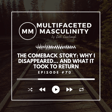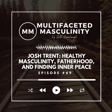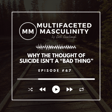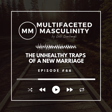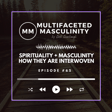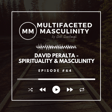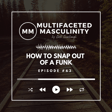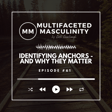
Andrew Daniel - Overcoming a Victim Mentality... and so much more | Ep. #62
Andrew Daniel is an award-winning and international bestselling author and director at the Center for Cinesomatic Development. His Cinesomatics® workshops are held internationally from Nashville to London, Tuscany to Switzerland—helping professionals see the elusive patterns that hold them back. This methodology leads the world in cinematic movement diagnostics and advanced intuition development integrating approaches from embodiment, shadow work, therapy, and spirituality.
His book, Awaken to Your True Self, is a gold Nautilus Book Awards recipient and #1 Amazon bestseller in the US & UK. In his early career, Andrew coded a particle and physics engine by the age of 18, which was used by top Fortune 100 companies over the seven years of his software business. His first teaching work, Holistic Sex (Mindvalley, 2014), provided the world with a new paradigm that bridged the divide between sexuality, spirituality, and the sexes. Andrew is also an advisor for the Alan Watts Organization.
In this episode you'll learn:
- Why is a victim mentality so “attractive”?
- Why are people afraid to let go of a victim mentality?
- How does somebody break out of a victim mentality?
- What does shadow work mean, and why is it so important?
- Can someone with a victim mentality have deep, meaningful sex?
- In what ways does our true self hide in the shadows?
- Where does our ego come from?
- What does “Ego death” mean?
- Why do people plateau or get stuck with self-development?
- Why is it important to have a holistic approach to connecting to your true self?
- Why is it important to have a holistic approach to connecting to your true self?
- What is Cinesomatics and how is it different from other approaches to connecting to your true self?
Links
Host: Josh Cearbaugh
Website: https://joshcearbaugh.com
Instagram: https://instagram.com/joshcearbaugh
Linkedin: https://www.linkedin.com/in/joshcearbaugh/
Online Course: https://www.jumpstartyourlife.com
Guest: Andrew Daniel
Website: https://andrewdaniel.org/
Website: https://cinesomatics.org/
